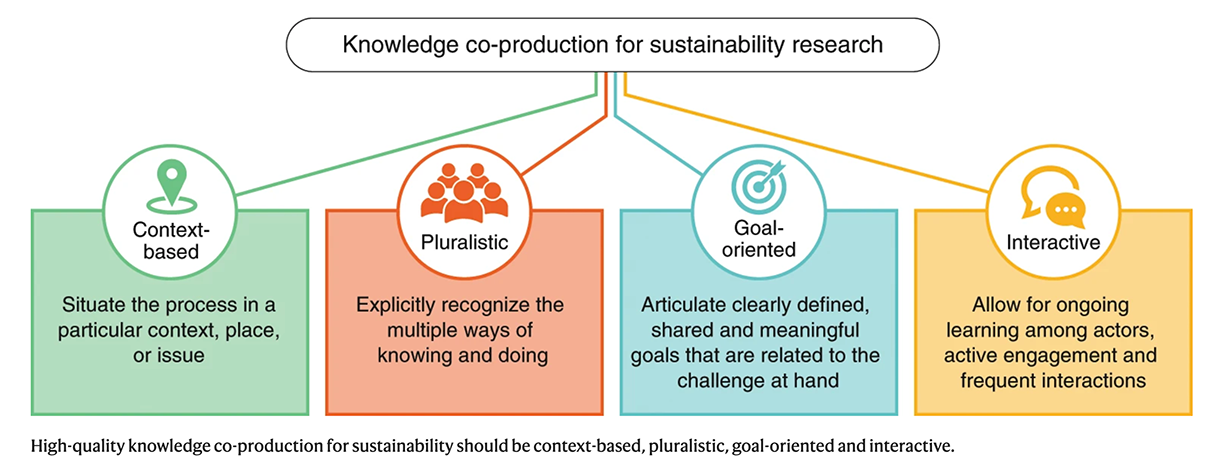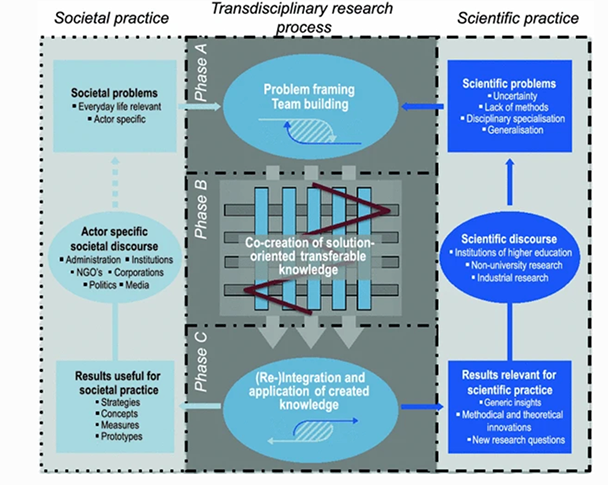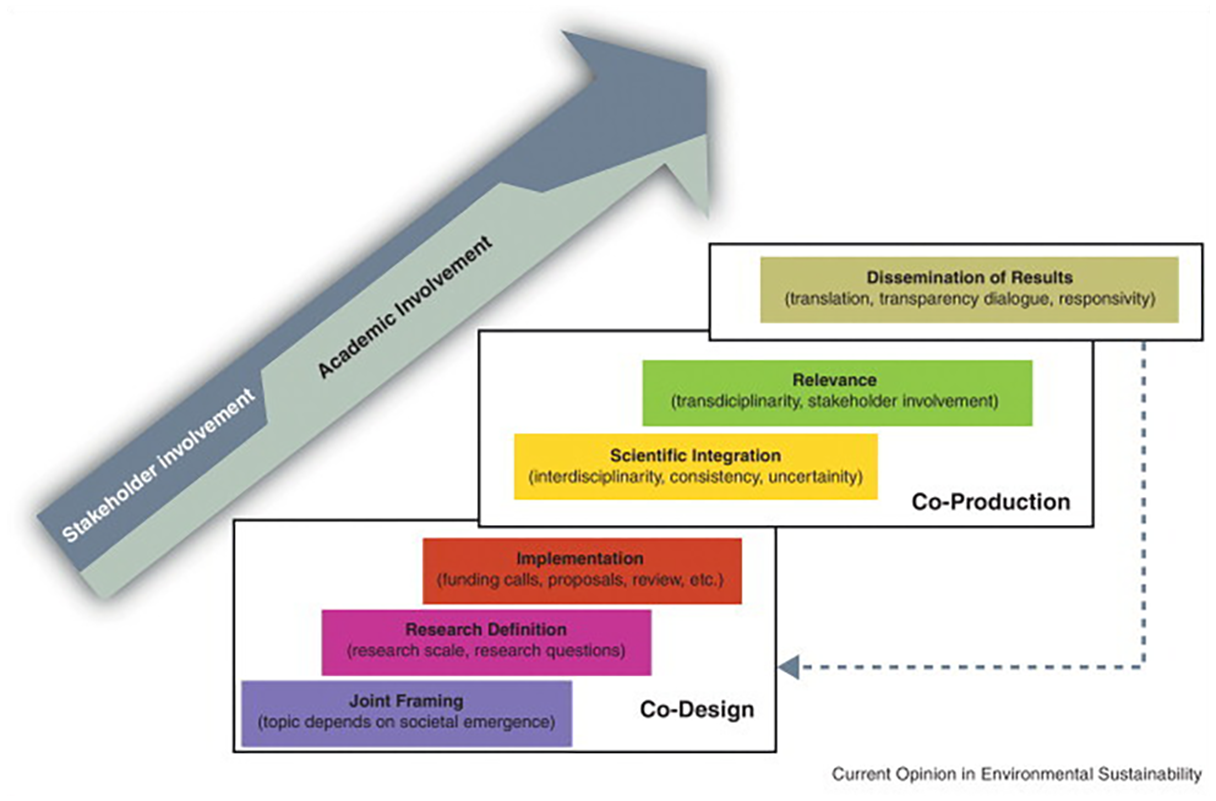Bibliography
This is a list of key literature about co-creation and transdisciplinary research (TDR).
Literature reviews
1. Principles for knowledge co-production
Norström, A. V., Cvitanovic, C., Löf, M. F., West, S., Wyborn, C., Balvanera, P., & Campbell, B. M. (2020). Principles for knowledge co-production in sustainability research. Nature sustainability, 1-9.
Although the term ‘knowledge co-production’ has become widespread among sustainability researchers, concepts and practices of knowledge co-production vary widely. This paper proposes four characteristics of high-quality knowledge co-production (context-based, pluralistic, goal-oriented, and interactive) (Fig. 1) and presents a method to evaluate their quality and success.

Fig. 1:Principles for knowledge co-production for sustainability research
2. Transdisciplinary research in sustainability science:
Practice, principles and challenges
Lang, D. J., Wiek, A., Bergmann, M., Stauffacher, M., Martens, P., Moll, P., & Thomas, C. J. (2012). Transdisciplinary research in sustainability science: practice, principles, and challenges. Sustainability science, 7(1), 25-43.
This is one of the most frequently cited references on TDR. This paper presents a conceptual model and principles of an ideal-typical TDR process, based on reviews of transdisciplinarity (TD) literature and practical experience.
This ideal-typical TDR process consists of the following three stages:
1) Collaborative problem-framing and building a collaborative research team
2) Co-creation of solution-oriented and transferable knowledge through collaborative research
3) (Re-)integrating and applying the co-created knowledge
In the first stage, the direction of the research process is determined, a framework is created, and a team is formed. In the second stage, various knowledge is brought together and new knowledge is acquired to solve the problem while conducting research collaboratively. In the third stage, the created knowledge is integrated and applied.
In addition, this paper provides great detail about the design principles for each research phase and the guiding questions that can help achieve those principles. It also provides a review of common challenges for TDR in sustainability science and how to address them.

Fig. 2: The ideal TDR process
3. Transdisciplinary global change research: the co-creation of knowledge for sustainability
Mauser, W., Klepper, G., Rice, M., Schmalzbauer, B. S., Hackmann, H., Leemans, R., & Moore, H. (2013). Transdisciplinary global change research: the co-creation of knowledge for sustainability. Current Opinion in Environmental Sustainability, 5(3-4), 420-431.
This paper provides an overview of Future Earth, a new 10-year international research program to study global environmental change and its central research questions. The transdisciplinary knowledge co-production process promoted by Future Earth will be carried out in three steps: co-design (collaborative research design), co-production (collaborative knowledge production), and collaborative dissemination of the results. The academic community and stakeholders will be involved throughout the research process, but the degree of involvement will vary at each step. Specific procedures and activities for implementing the theory of a transdisciplinary methodology in such a large-scale research program are also presented.

Fig. 3: Degree of stakeholders and academic involvement in each step of the research process




